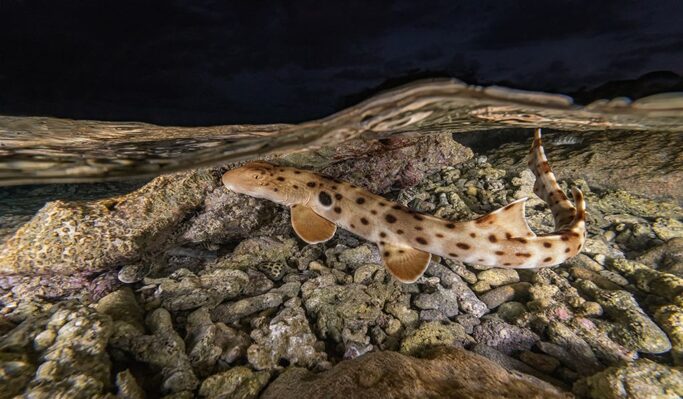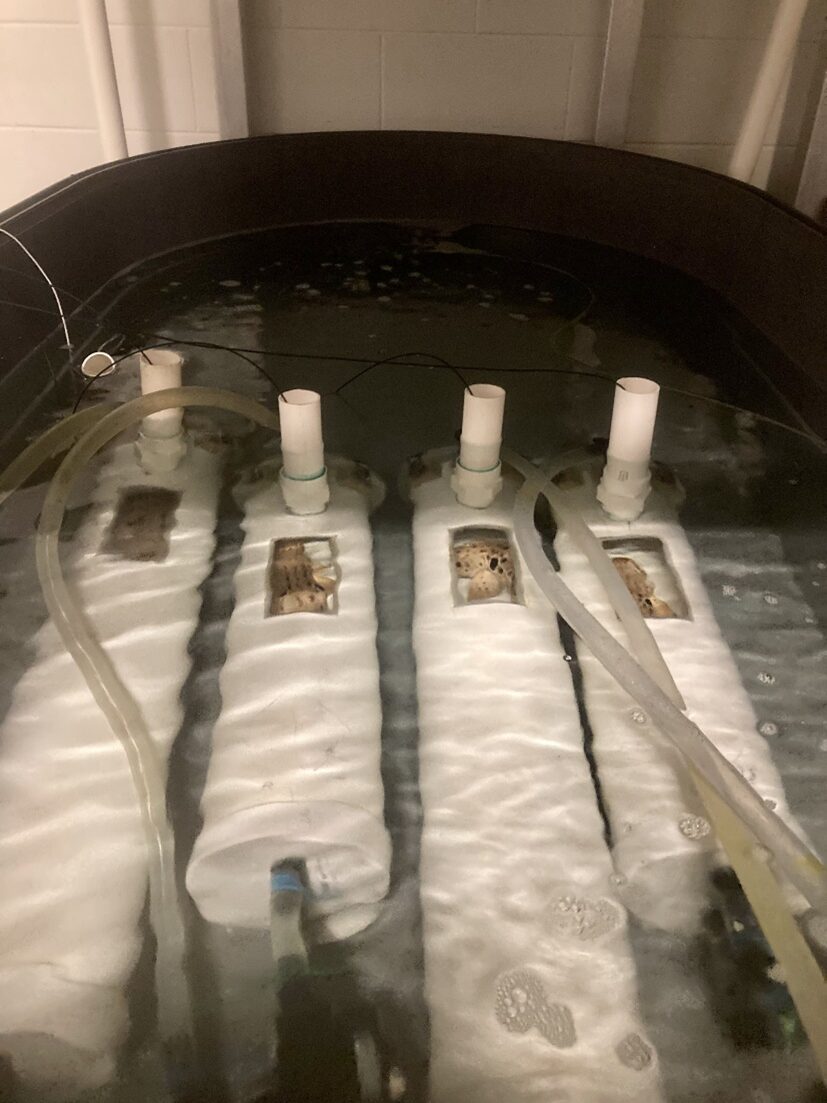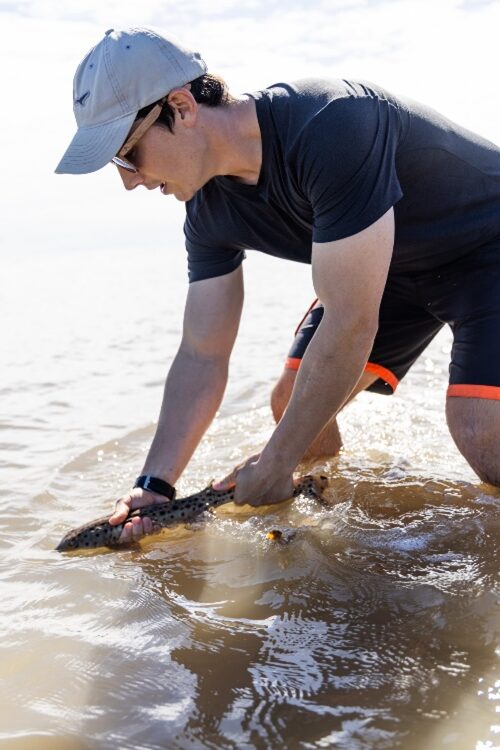Can the epaulette shark ‘out-walk’ climate change?
Hi, everyone! My name is Aaron Hasenei and I’m elated to be a project leader as a part of Save our Seas Foundation’s mission to create a lasting positive impact for global conservation initiatives on our blue planet! As part of my doctoral studies at James Cook University, my project focuses on characterising epaulette sharks (Hemiscyllium ocellatum) as a ‘canary in the coal mine’ for how tropical, egg-laying sharks and rays will fare in an uncertain future with climate change, specifically ocean warming.

Little hunter. Photo © Kristian Laine
By simulating various ocean warming conditions within aquarium settings, I have been using cross-disciplinary tools in physiology, genetics, and biomechanics as a proverbial crystal ball to understanding how geographically distinct populations of epaulette sharks will respond to both chronic and acute ocean warming. My project aims to examine the mechanistic underpinnings of physiological performance through epigenetics as it relates to metabolism, and how genes are up/down regulated to influence these performance biomarkers under future warming scenarios across the Great Barrier Reef. If we can gain a fundamental understanding of the performance mechanisms that contribute to resilience and susceptibility of shark and ray species to climate change stressors, we can utilise findings of this research on the epaulette shark as a comparative baseline for other similar species to allow for enhanced conservation measures.

Epaulette respirometry. Photo © Aaron Hasenei
It’s well established that fisheries exploitation is the primary threat to sharks worldwide, resulting in these critical animals being among some of the most imperilled species on the planet, which is why designation of marine protected areas is so essential. However, even the most protected areas are not immune to the impacts of impending climate change. Research that can forecast consequences of future stressors on invaluable species of conservation concern will be increasingly more vital as we near the end of the 21st century.

Balgal Beach release. Photo © Aliah Banchik
